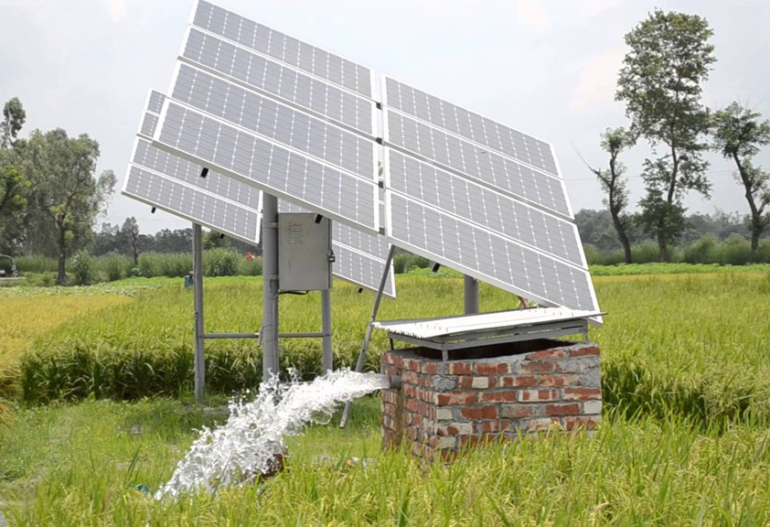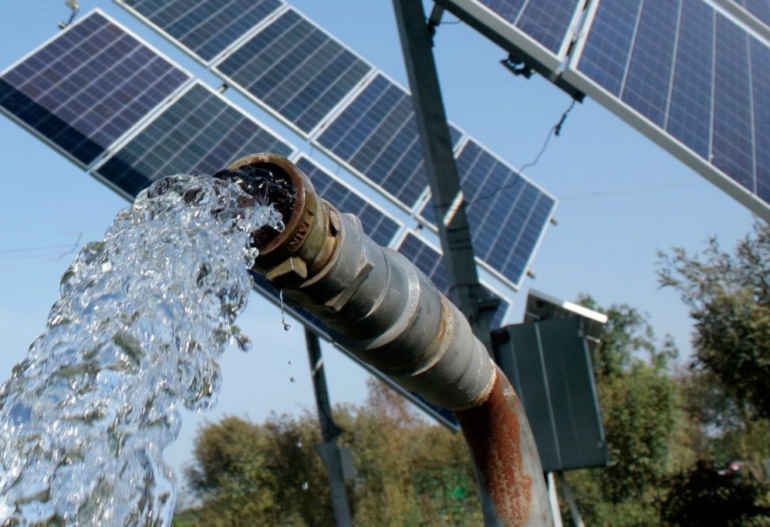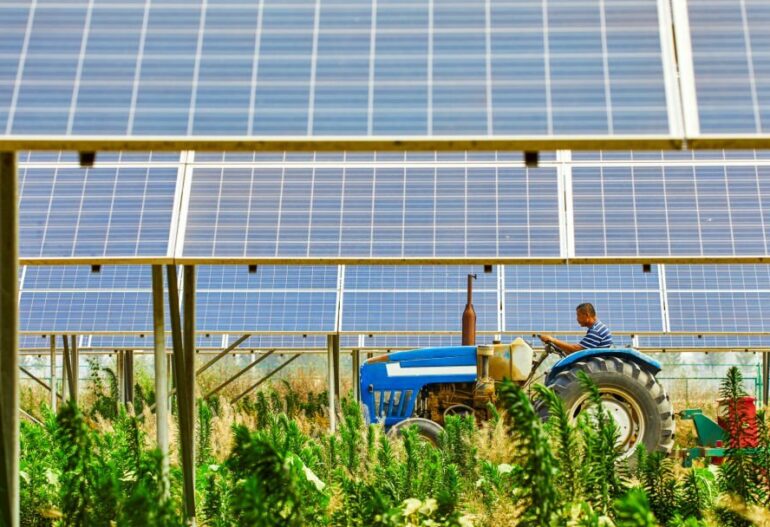In recent years, the agricultural sector has increasingly turned to sustainable and renewable energy sources to power its operations. Solar energy has emerged as a viable and beneficial option, revolutionizing the way farmers and agricultural businesses approach their energy needs. Harnessing the power of the sun not only helps reduce carbon emissions but also brings numerous advantages to the agriculture sector. In this blog post, we will explore the use of solar energy in agriculture and the benefits it offers.
On-farm Energy Generation
By installing solar panels on their farms, agricultural businesses can generate their own electricity, reducing their dependence on the grid. Solar energy systems capture sunlight and convert it into electricity through photovoltaic (PV) panels. This self-sufficiency allows farmers to produce clean energy while also reducing their energy costs over the long term.

Cost Savings and Financial Incentives
Solar energy provides significant cost savings for agricultural operations. While the initial installation cost may be higher, the long-term benefits outweigh the investment. Solar panels have a long lifespan, requiring minimal maintenance and operating costs. Additionally, farmers can take advantage of various financial incentives, such as government grants, tax credits, and feed-in tariffs, which further contribute to the economic viability of solar energy in agriculture.
Irrigation and Water Management
Irrigation plays a crucial role in agriculture, and solar energy can power efficient irrigation systems. Solar-powered water pumps and drip irrigation systems enable farmers to optimize water usage, reducing waste and conserving this precious resource. Solar-powered pumps can be deployed in remote locations where access to the electrical grid is limited, providing reliable and sustainable water supply for crops.
Off-Grid Solutions
In regions with limited or unreliable access to electricity, solar energy provides a lifeline for farmers. Off-grid solar systems, combined with energy storage solutions such as batteries, enable agricultural operations to operate independently. This ensures continuous energy supply for critical processes like livestock management, crop storage, and dairy production. Solar-powered refrigeration systems, for example, can store perishable goods and prevent spoilage, thereby extending product shelf life.
Environmental Sustainability
Solar energy is a clean and renewable resource, contributing to a greener agricultural sector. By embracing solar power, farmers reduce their carbon footprint and decrease reliance on fossil fuels. Solar installations produce zero greenhouse gas emissions during operation, helping combat climate change. By adopting solar energy, the agriculture sector becomes a crucial partner in achieving global sustainability goals.

Resilience and Energy Security
Solar energy enhances the resilience and energy security of agricultural operations. By generating their own power, farmers become less vulnerable to power outages, grid failures, and rising energy costs. This independence ensures that crucial farm activities continue uninterrupted, safeguarding livelihoods and food production.
Positive Public Perception and Branding
Consumers today are increasingly conscious of the environmental impact of their food choices. By adopting solar energy, farmers can differentiate themselves as sustainable producers, attracting environmentally conscious consumers. Embracing solar power not only benefits the bottom line but also enhances a farm’s reputation and marketability, providing a competitive edge in the marketplace.
The integration of solar energy into the agriculture sector brings multifaceted benefits, ranging from cost savings and environmental sustainability to improved resilience and branding opportunities. By harnessing the power of the sun, farmers and agricultural businesses can secure a more sustainable and profitable future. The shift towards solar energy in agriculture is not only a smart business decision but also a crucial step towards a greener and more resilient food production system.



![[Downloader.la]-6469c65ec827f Thermoscan(thermal image camera), Industrial equipment used for checking the internal temperature of the machine for preventive maintenance, This is checking The power supply for tracking sun of solar plant.](https://www.grit.energy/wp-content/uploads/2023/05/Downloader.la-6469c65ec827f-90x67.jpg)